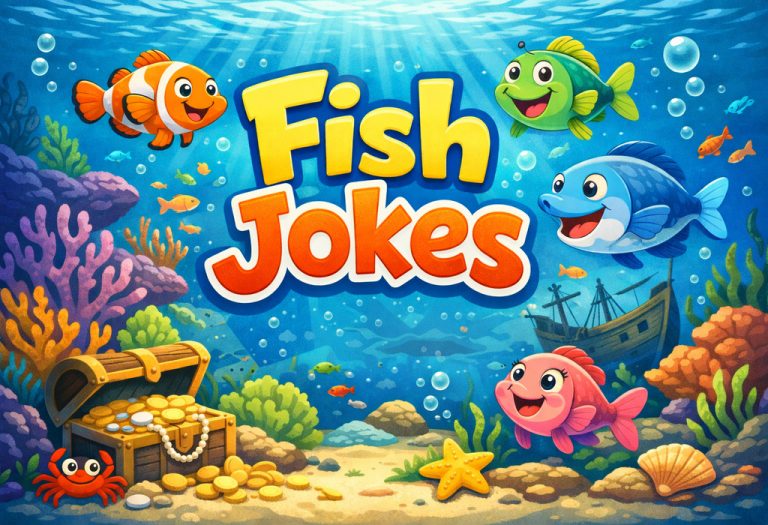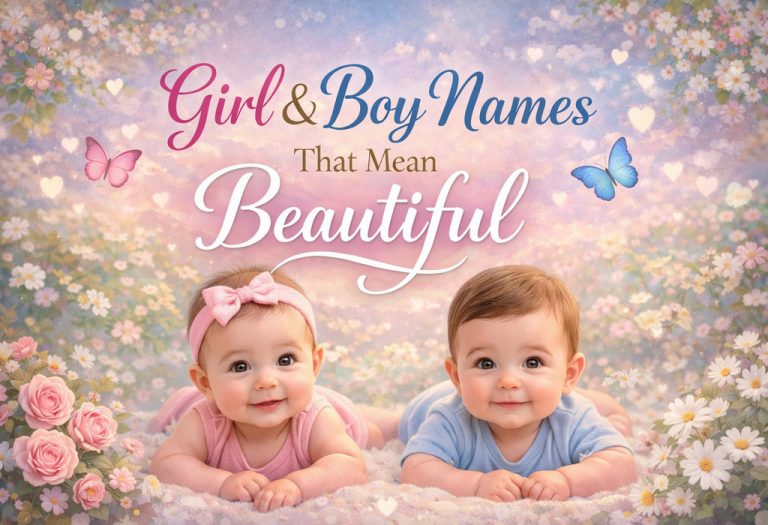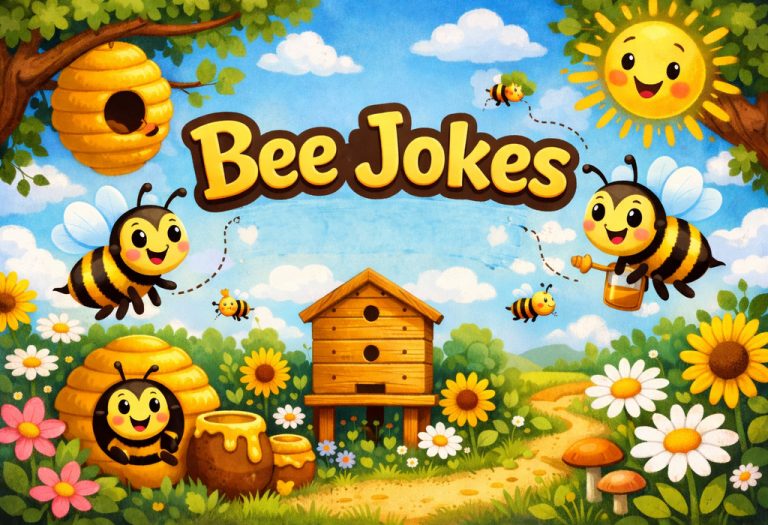Nipple Biting While Breastfeeding – Reasons and Prevention

A baby biting nipples while breastfeeding is common. Many babies do it for various reasons; the most common is teething. Babies will gnaw at anything that relieves the pain of teething.
When breastfeeding properly, a baby will cover the lower gum ridge or teeth (if he/she has teeth yet) with the tongue and will be wary of biting the breast as that would hurt the underside of the tongue, too. In the correct latch, the nipple is positioned deep in the baby’s mouth and cannot be bitten. However, if a baby is not latched on properly or the tongue is not correctly used, it can feel he/she is clamping down or biting on the nipple.
As we know, every problem has a solution, and so does this. We need to take certain measures to prevent babies from biting, which can be done only when you know why your baby bites while breastfeeding. Once that is known, half the battle is won. After that, you can easily take preventive steps to stop your little one from hurting you.
Reasons for Baby Biting While Breastfeeding
There are plenty of reasons for baby biting while nursing. Apart from not latching on properly to your breast or improper positioning while being breastfed, here are some reasons as to why babies bite while breastfeeding.
- Teething can be said to be the number one cause of this problem. Your baby seeks relief from the pain during teething by biting onto the mother’s breast while breastfeeding (1).
- Older babies get distracted easily. In case they turn to look at something, they can forget that they still have their mother’s breast in their mouth. This can cause unintentional damage when the baby inadvertently closes its jaws (3).
- Sometimes, babies don’t get enough milk, so they bite into the nipple to get a better hold.
- A baby may involuntarily bite when they fall asleep while being breastfed.
- Babies bite as a sign of affection and may cause unintended damage to the nipple.
- Biting can be a sign of Tongue Tie in younger or newborn babies and should be examined by a paediatrician.
Can You Continue Feeding Your Baby Even After Teething?
There is no reason as to why you cannot continue feeding your baby when it begins to grow its milk teeth. It is a common misconception that when a baby has teeth and starts biting, the time for nursing is over, and it is time to start weaning. But that’s not necessarily correct (6). If your baby is latched on properly and the positioning is correct while being breastfed, you should not feel any pain, even if they have a mouthful of pearly whites (2). A breastfeeding baby biting with gums can just as painful as a baby biting with their teeth.
Biting is something that most babies try to explore, especially when they are teething. It can be stopped with a little bit of persistence on your part. Not all babies react in the same manner to a situation, and you may need to try various ways to discourage him/her before you find one which works. All that is required to stop your baby from biting you while breastfeeding is the three “P’s”: Patience, Perseverance and Persistence.
What to Do If Baby Bites While Breastfeeding?
It’s not uncommon for babies to bite during breastfeeding. This behaviour can be quite painful and unsettling. Here’s how you can handle biting during breastfeeding:
1. React Calmly and Gently
When your baby bites, try to stay calm and avoid reacting with a loud or abrupt response. A sudden reaction may startle your baby and create anxiety around feeding times. Instead, gently remove your baby from your breast and say, “No biting; it hurts Mommy.” This helps your baby understand that biting is unacceptable without creating fear or discomfort (5).
2. Use a Firm “No”
After removing your baby from the breast, firmly but gently say “no” to indicate that biting is not allowed. Consistency is key, so use the same phrase each time biting occurs. This helps your baby learn that biting results in the end of the feeding session.
3. Check for Signs of Teething
If biting is a new behaviour, it might be related to teething. Check your baby’s gums for signs of emerging teeth. If teething is the cause, consider offering a teething toy or a chilled washcloth before breastfeeding to soothe their gums. This can help reduce the urge to bite during feedings (4).
How to Stop Baby From Biting While Nursing?
Many mothers ask how to stop their baby from biting the nipple. Biting comes naturally to babies, especially when they are teething. However, by taking several measures, mothers can try to prevent their baby from biting while nursing.
- The baby often bites after the nursing session or when it is tired and bored of suckling. So, watch out for indications of disinterest and stop nursing before the biting begins.
- Mothers should learn to position their babies correctly. Incorrect positioning of the baby while breastfeeding could irritate them, which in turn could lead the baby to bite the mother’s breast.
- Make sure that there are no distractions while feeding the baby. If there are any distractions, the baby may forget what they are doing and close their mouth, which could be painful.
- Talk to your baby while feeding them to communicate that biting is not a good thing. Consistently engage them by singing or telling a story while feeding them. When you see their jaws tighten to bite, just say a firm ‘no’. For this, too, you may have to experiment with several ways of saying it because, for some, a stern impression may work and, for others, something else.
- If your breasts are engorged, the baby may find it difficult to latch on to it. Therefore, before you start nursing, try expressing some milk.
- Learning the time when your baby bites can also help in preventing them from taking jabs at your nipple. Usually, babies bite at the end of a nursing cycle when they have finished getting enough milk and simply want to play around by gnawing at your nipple. Therefore, once the baby slows down the intensity of their sucking, gently pull your breast off from their mouth.
- Many mothers find that encouraging correct behaviour with ample praise is effective in discouraging the baby from biting.
- Feeding the baby only when hungry can also prevent a baby from biting. If the baby is hungry, they will be more interested in sucking milk and less in biting.
- You can also soothe the baby’s gums by feeding them expressed breastmilk popsicles.
Can Your Nipple Get Damaged Due to Baby Bites?
The biting of the nipple by the baby while breastfeeding can be painful. It leads to soreness and discomfort, too. Usually, it does not damage the nipple, but at times, you can get a bad bite from your baby. In that case, it is best to apply ice right after the injury and after every nursing session. Apart from this, Ibuprofen (Advil, Motrin) or Acetaminophen (Tylenol) is compatible with breastfeeding and can be taken as and when required. However, it is best to take the advice of a medical practitioner before taking any medicine. Also, applying a few drops of fresh Aloe Vera juice could help heal the wound (7).
FAQs
1. Can I use a pacifier to prevent biting?
A pacifier might help satisfy your baby’s need to chew and reduce the likelihood of biting during breastfeeding. However, it’s important to ensure that your baby has ample opportunities to latch correctly and feed effectively.
2. How long does it typically take for a baby to stop biting?
The duration varies by baby. Some babies may stop biting within a few weeks after adjusting to proper latching and feeding techniques, while others might take longer.
3. When should I seek professional help for biting?
If biting persists despite trying various strategies or if you experience significant pain and discomfort, it may be helpful to consult a lactation consultant or your doctor. They can offer guidance on improving the latch and addressing any underlying issues.
Although babies biting while breastfeeding can be painful and a nuisance for the mothers, one cannot steer clear of it. You may go through a whole lot of pain and problems associated with breastfeeding, but the outcome is sure to be rewarding for both you and your baby. After all, a mother’s milk is rich in nutrients and antibodies and helps a baby’s health and growth.
References/Resources:
1. Breastfeeding: why babies may bite and how to stop it; NCT; https://www.nct.org.uk/baby-toddler/feeding/common-concerns/breastfeeding-why-babies-may-bite-and-how-stop-it
2. 5 common breastfeeding problems; UNICEF; https://www.unicef.org/parenting/food-nutrition/5-common-breastfeeding-problems?gad_source=1&gclid=EAIaIQobChMI2KLUybS4iAMVW6RmAh15mijyEAAYASAAEgLeZPD_BwE
3. La Leche League GB; Help! My baby bit me!; https://laleche.org.uk/help-baby-bit/
4. Breastfeeding FAQs: Spitting Up, Gagging, and Biting; Nemours KidsHealth; https://kidshealth.org/en/parents/breastfeed-spitting-up.html
5. Breastfeeding When The Baby is Teething/Biting; Breastfeeding Support For Indian Mothers; https://www.bsim.org.in/breastfeeding-information-breastfeeding-when-the-baby-is-teething-biting/
6. Breastfeeding; WHO; https://www.who.int/health-topics/breastfeeding#tab=tab_2
7. Sore, cracked or bleeding nipples; Pregnancy, Birth and Baby; https://www.pregnancybirthbaby.org.au/sore-cracked-or-bleeding-nipples
Also Read:
Baby Choking when Breastfeeding
Baby Sweating during Breastfeeding
Baby Crying while Breastfeeding
Baby Sleeping when Breastfeeding
Was This Article Helpful?
Parenting is a huge responsibility, for you as a caregiver, but also for us as a parenting content platform. We understand that and take our responsibility of creating credible content seriously. FirstCry Parenting articles are written and published only after extensive research using factually sound references to deliver quality content that is accurate, validated by experts, and completely reliable. To understand how we go about creating content that is credible, read our editorial policy here.






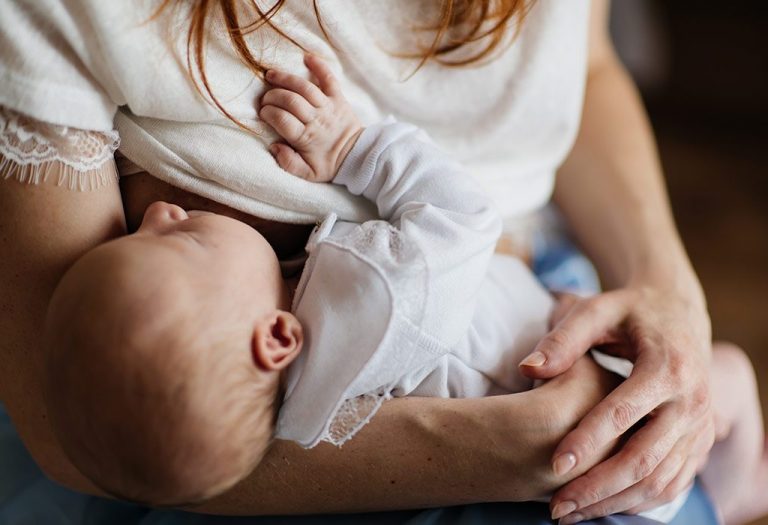
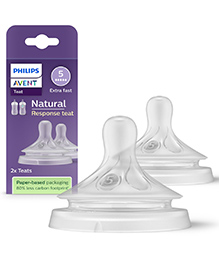
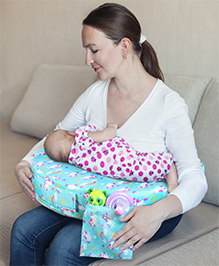
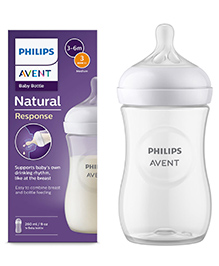
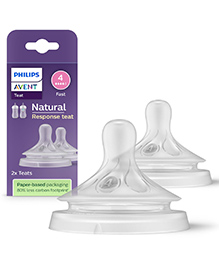
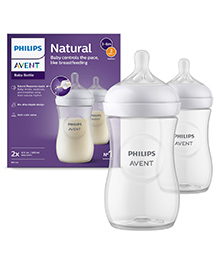
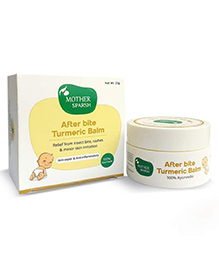
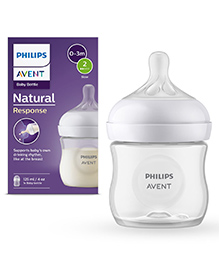
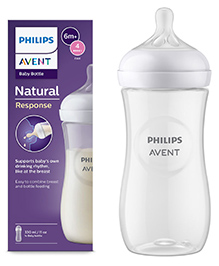
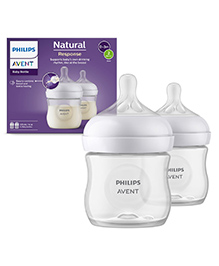
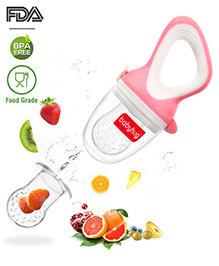

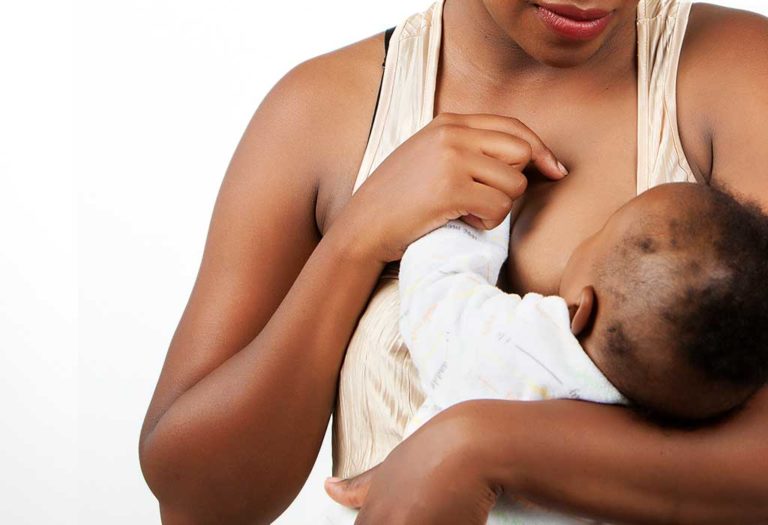
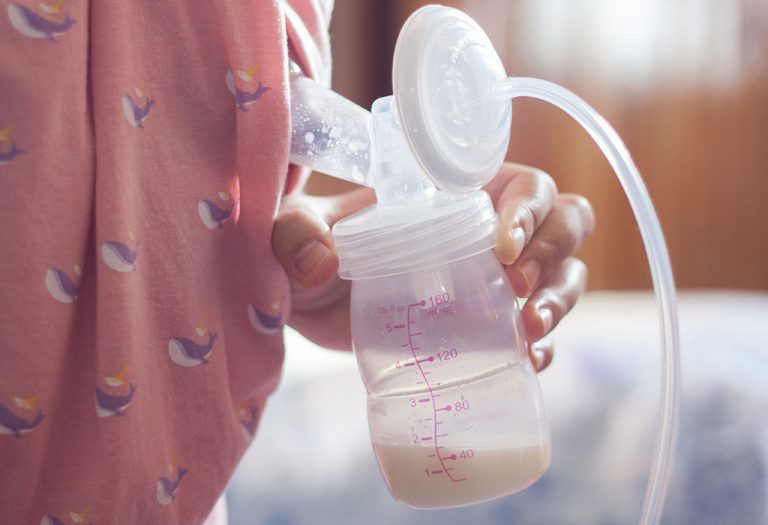


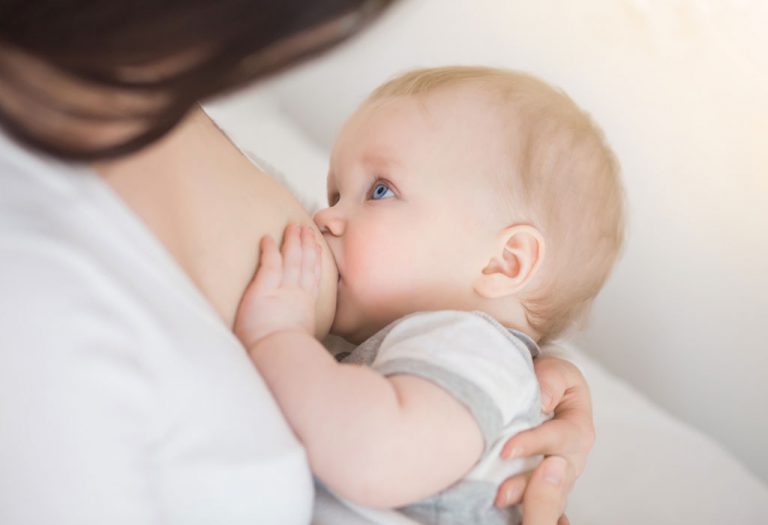
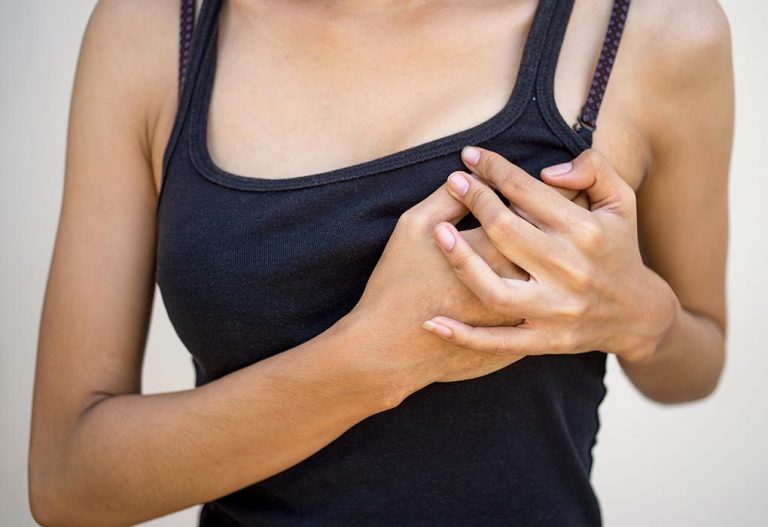

.svg)








